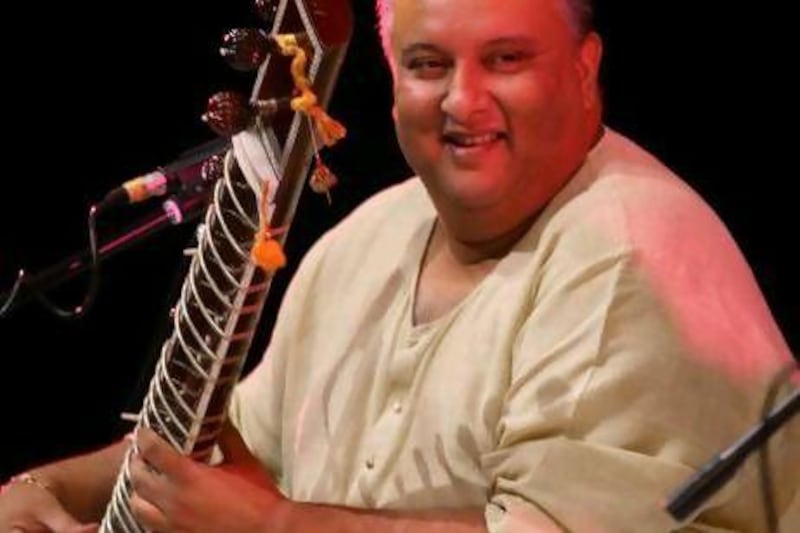The son of the legendary Indian musician Vilayat Khan will host an evening concert at Ductac in Dubai's Mall of the Emirates on Wednesday. Shujaat Khan, the acclaimed sitar player and a seventh-generation instrumentalist from one of the country's most renowned musical families, will also be conducting a workshop earlier that afternoon.
"It will almost be like 'an introduction to classical Indian music'," he says. "I'm happy to answer any questions people may have about the sitar - and I think it will appeal to people who are looking for something a little bit different."
Hailing from the Imdadkhani Garana school of music, Khan's spontaneous and often haunting style saw him nominated for a Best Traditional World Music Album Grammy following his collaboration with the Indo-Persian ensemble Ghazal in 2004.
With more than 60 albums to his name, Khan shows no signs of slowing down and firmly believes in the sustained popularity of his musical genre. "It's always been huge and today it's probably the most recognised 'type' in world music," he says. "It's used in nearly every kind of fusion and, from Hollywood to Bollywood, you'll find our instruments in different pieces of music."
Khan encourages those unfamiliar to attend the workshop and discover the difference between Indian and the European classical music they may be more familiar with.
"The main difference is that western music is mostly pre-composed where as our music is mostly created and played on the spot," he says. "Lots of people, therefore, would like to put it into a box of being either spiritual or serious, which is entirely untrue.
"It's a music where we deal with many different kinds of emotions and you should be able to sense, feel and enjoy these over the course of a concert. There are parts that can be very melancholic and sombre and others which are exhilarating and fun. That's how I play; I tell stories of my youth, my growing up in the mountains, watching the changing seasons - and there are tales of love - I say it all through music."
Khan's concert is the second in a series of monthly performances by leading practitioners of Indian music. The inaugural Emirates NBD Classics event held last month featured the experimental tabla maestro Bickram Ghosh. The actor and composer, noted for his many collaborations - the Beatle George Harrison among them - played the popular percussion instrument to a packed house in Dubai.
Following on from Khan's forthcoming performance, his sister Ustad Maa Zila Khan is due back on the Ductac stage to perform on November 21.
Carrying on the famous family tradition, she successfully established herself as the first female Sufi singer from Gharana to give live concerts. Differing in style from her brother, Khan's music includes the Sufi forms of qaul, qalbana and gul. She is also dedicated to the revival of traditional Ghazal singing - an ancient poetic form consisting of rhyming couplets and a refrain, sharing the same metre.
• Entry to the workshop is free. Wednesday's concert at 7.30pm is by invitation only. To become eligible for tickets, register online at www.facebook.com/emiratesclassics
Follow
Arts & Life on Twitter
to keep up with all the latest news and events
[ @LifeNationalUAE ]





